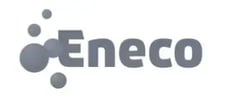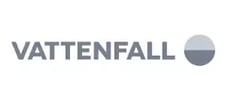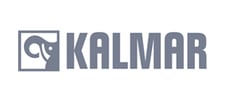LionHead Skills
Knowledge Hub
Insights, Reports & Publications
Knowledge & Publications
For anyone interested in the impact of a skills-based labour market, we’ve curated a selection of publications that offer deeper insights and perspectives.
2025-03: Summary: The European Commission: – “The Union of Skills-”
Summary: The Union of Skills – Why it Matters
The European Commission outlines a bold new strategy: to make the EU workforce more competitive, flexible, and future-ready by putting skills at the heart of economic and social policy.
Why this matters for organisations
✔ Europe faces a critical skills shortage — especially in technology, sustainability, healthcare, and vocational sectors
✔ Education systems are lagging behind fast-moving labour market demands, especially in digital and green technologies
✔ Skills fragmentation between countries, industries, and institutions is limiting mobility and innovation
What the EU wants to achieve
-
A labour market where skills, not job titles, define value
-
A future where everyone can upskill and reskill throughout life
-
Stronger links between education, employers, and policy
-
Recognition of skills and qualifications across borders
-
Europe as a magnet for global talent
Four strategic priorities
🔹 Build strong skills foundations
Focus on basic literacy, numeracy, digital skills, and STE(A)M — with equal opportunities across regions and backgrounds
🔹 Support upskilling and reskilling
Roll out flexible learning (e.g. micro-credentials), workplace training, and learning accounts tailored to people’s real needs
🔹 Facilitate mobility and recognition
Make skills portable across the EU. Develop shared standards, digital credentials, and EU-wide diplomas for VET and higher education
🔹 Attract international talent
Launch the EU Talent Pool and new visa pathways to bring in global skills — while improving integration and job quality
How LionHead contributes
At LionHead, we’re already aligned with these EU ambitions. Through:
-
Skills passports that reveal the true potential of your people
-
Skills scans that uncover gaps and strengths across teams and projects
-
A vision where talent decisions are made based on skills, not assumptions
Want to future-proof your workforce? www.lionhead.works
2024-06: Summary: McKinsey: Building a future labor market that works
Summary: Netherlands advanced – Building a future labour market that works
The Dutch labour market is under pressure. An aging population, slow productivity growth, rising inequality, and increasing health challenges are threatening the country’s ability to meet its economic and societal ambitions. McKinsey outlines how the Netherlands must act now to build a labour market that is resilient, future-ready, and focused on skills.
Why this matters for organisations
✔ Labour shortages could reach 1.4 million by 2030, driven by demographic and economic trends
✔ There are already 110 vacancies per 100 unemployed people — the tightest market in decades
✔ Productivity growth has slowed to 0.4% per year, well below historical levels
✔ Skills mismatches are increasing, especially in tech, healthcare, and skilled manual trades
✔ Without targeted action, both public services and business performance will be at risk
What the Netherlands wants to achieve
-
Reduce labour shortages by improving productivity and increasing participation
-
Transition the workforce through reskilling and upskilling at scale
-
Improve labour mobility and shift talent into future-critical roles
-
Ensure learning and adaptability are embedded in everyday work
-
Protect the mental and physical fitness to work of employees in every sector
Four strategic priorities
🔹 Accelerate productivity
Invest in automation, AI, and innovation to reduce labour shortages by over 1 million people by 2030
🔹 Increase participation
Enable part-time workers and those near retirement to contribute more — helping reduce shortages by another 100,000–200,000
🔹 Boost labour mobility
Facilitate a “train of job transitions” where workers move through adjacent roles with reskilling — not direct leaps between sectors
🔹 Enhance fitness to work
Promote lifelong learning, redesign physically demanding jobs, and invest in mental health to maintain a sustainable workforce
How LionHead contributes
LionHead is already working on solutions that directly support this transformation:
-
Skills passports
Make the capabilities of employees and jobseekers visible and portable — enabling better talent matching and mobility -
Skills scans
Give organisations insight into their existing skill base and where gaps exist for future projects -
Reskilling strategies
Support lateral and upward transitions by identifying realistic training paths — aligned with both employer demand and worker potential -
Flexible Workforce Pools
Enable employers to access talent across company borders, improving project delivery and resilience across the sector
These tools help turn the national labour market strategy into practical action — from insight to execution.
Summary: KPMG: "De skills-based organisatie"
Summary: De skills-based organisatie
The Dutch labor market is experiencing unprecedented shortages, necessitating a shift from traditional static job profiles to a dynamic, skills-based approach. By deconstructing roles into specific tasks and required skills, organizations can better match internal and external talent, enhance employee retention, and identify opportunities for digitalization. Implementing technological skills platforms enables personalized career and learning pathways, fostering a more agile and satisfied workforce. KPMG
Why this matters for organizations
✔ Addressing talent shortages: Traditional recruitment methods are insufficient in the current tight labor market. A skills-based approach broadens the talent pool by focusing on competencies rather than rigid job titles.
✔ Enhancing employee retention: Providing clear, skills-based career development opportunities increases job satisfaction and reduces turnover, which is crucial in a competitive employment landscape.
✔ Optimizing workforce utilization: Understanding the specific skills within the organization allows for better alignment of talent with projects, leading to increased efficiency and productivity.
✔ Facilitating digital transformation: Identifying tasks that can be automated or digitized becomes more straightforward when roles are analyzed based on their constituent skills.
What organizations aim to achieve
-
Agility in talent management: Transitioning to a skills-based model allows organizations to respond more swiftly to market changes by reallocating talent based on current needs.
-
Diverse career pathways: Moving beyond the traditional 'up or out' progression models to offer lateral and project-based opportunities that align with employees' skills and interests.
-
Strategic workforce planning: Developing a comprehensive understanding of current and future skill requirements to inform recruitment, training, and development initiatives.
Four strategic priorities
🔹 Deconstruct roles into skills
Break down existing job profiles into specific tasks and required skills to facilitate better matching and identify opportunities for automation.
🔹 Implement skills platforms
Utilize AI-driven technologies to map employees' skills, recommend personalized development paths, and match talent to internal opportunities.
🔹 Foster a culture of continuous development
Encourage regular development conversations and provide resources for employees to upskill, ensuring alignment with organizational needs.
🔹 Align HR strategy with business goals
Ensure that HR initiatives, particularly those related to skills development, are closely integrated with the organization's strategic objectives.
How LionHead contributes
At LionHead, we are at the forefront of facilitating the transition to skills-based organizations through:
-
Comprehensive skills assessments
Providing tools to identify and catalog the existing skills within your workforce, laying the foundation for effective talent management. -
Personalized development pathways
Utilizing advanced platforms to create tailored learning and career progression plans that align employee aspirations with organizational needs. -
Strategic workforce planning support
Assisting in forecasting future skill requirements and developing strategies to bridge gaps through targeted recruitment and training. -
Integration of technology and human capital
Leveraging AI and automation to enhance HR processes, from recruitment to performance management, ensuring a seamless and efficient approach to talent development.
By embracing a skills-based approach, LionHead empowers organizations to navigate the complexities of the modern labor market effectively.
Summary: McKinsey: 2024 and Beyond – Stagnation or Productivity-Driven Abundance?
Summary: 2024 and Beyond – Stagnation or Productivity-Driven Abundance?
The global economy faces a crossroads. While short-term stability may return in 2024, long-term resilience depends on a renewed focus on productivity. McKinsey outlines a clear path forward: invest in people, technology, and operational efficiency to avoid stagnation and unlock future prosperity.
Why this matters for organisations
✔ Input costs and interest rates remain high, squeezing margins across industries
✔ Talent shortages and wage pressure are intensifying the need for operational agility
✔ Productivity growth has stalled in many sectors, limiting long-term competitiveness
✔ Organisations that fail to adapt risk falling behind in a bifurcating economy
What the economy needs to achieve
-
Broad-based productivity gains across industries and sectors
-
Smarter use of technology to augment rather than replace work
-
A skilled workforce empowered by better tools and systems
-
Long-term investments that translate into sustainable growth
Four strategic priorities
🔹 Upskill and transform organisations
Develop people and redesign structures to support new ways of working
🔹 Manage costs strategically
Offset inflation and financing pressures through operational efficiency
🔹 Invest in tech and capital
Deploy tools that increase the value of work and unlock new capacity
🔹 Reclaim productivity leadership
Draw inspiration from historic productivity booms — and lead the next one
How LionHead contributes
At LionHead, we help organisations unlock productivity through:
-
Skills-based workforce strategy
Shifting the focus from job titles to what people can actually do — enabling smarter resource use -
Skills scans
Identifying where hidden capabilities lie and how to redeploy them effectively -
Flexible Workforce Pools
Creating agile networks of talent that respond quickly to evolving business needs -
Future-ready project delivery
Ensuring that skills, not silos, drive how teams are formed and projects are delivered
We believe productivity starts with people — and their skills.
Summary: BCG: Competence over Credentials – The Rise of Skills-Based Hiring
Summary: Competence over Credentials – The Rise of Skills-Based Hiring
The traditional emphasis on formal educational credentials is shifting towards a focus on demonstrable skills. This change is driven by the rapid evolution of job requirements and the recognition that skills can be acquired through various pathways beyond formal education. BCG's analysis reveals that skills-based hires perform comparably to their degree-holding counterparts, with added benefits of longer tenure and increased loyalty.
Why this matters for organizations
✔ Expanding talent pools: By prioritizing skills over degrees, companies can tap into a broader and more diverse group of candidates, addressing talent shortages effectively.
✔ Enhancing employee retention: Skills-based hires have been found to exhibit a 9% longer tenure compared to traditional hires, indicating greater loyalty and reduced turnover costs.
✔ Improving performance: Hiring based on skills is five times more predictive of job performance than hiring based on education, leading to better job fit and productivity.
✔ Promoting diversity and inclusion: Skills-based hiring practices contribute to breaking down barriers, allowing individuals from varied backgrounds to access opportunities previously limited by credential requirements.
What organizations aim to achieve
-
Agility in workforce development: Aligning talent acquisition strategies with the dynamic nature of skill requirements in the modern workplace.
-
Equitable access to opportunities: Ensuring that capable individuals, regardless of their educational background, have access to roles that match their skills.
-
Sustainable talent pipelines: Building a workforce that is adaptable and prepared for future challenges through continuous skill development.
Four strategic priorities
🔹 Redefine job criteria
Shift from degree-based qualifications to clearly articulated skill requirements in job postings.
🔹 Implement robust skill assessments
Develop and utilize tools to accurately evaluate candidates' competencies relevant to the role.
🔹 Foster a culture of continuous learning
Encourage and provide opportunities for employees to upskill and reskill, keeping pace with evolving industry demands.
🔹 Leverage technology in talent management
Utilize AI and data analytics to match candidates' skills with organizational needs effectively.
How LionHead contributes
At LionHead, we are committed to facilitating the transition to skills-based hiring through:
-
Skills passports
Providing a comprehensive overview of an individual's competencies, enabling better matching of talent to roles. -
Talent analytics platforms
Leveraging data-driven insights to inform strategic workforce planning and development.
By embracing a skills-based approach, LionHead empowers organizations to build resilient and capable workforces ready to meet the challenges of the future.
Summary: Mercer: 2024–2025 Global Talent Trends
Summary: Mercer 2024–2025 Global Talent Trends
The workforce is facing growing pressure — from financial insecurity and unclear career paths to limited flexibility and unequal benefits. Mercer’s latest report outlines how organisations must reshape work, leadership, and rewards to remain attractive, resilient, and competitive.
Why this matters for organisations
✔ Financial stress is a leading cause of employee burnout and disengagement
✔ Flexibility is a top priority — even more than salary for many employees
✔ Career development remains a weak spot, especially for hourly and operational roles
✔ Benefit structures are often unequal across workforce segments
✔ AI and technology present both an opportunity and a challenge for HR
What organisations want to achieve
-
A more human-centric approach to work and rewards
-
A flexible and adaptable workforce, empowered to grow
-
Stronger manager-employee relationships through clearer expectations and support
-
A shift from job-based to skills-based practices in talent management
-
Technology-enabled HR that supports strategy and employee needs
Four strategic priorities
🔹 Build better managers
Train and support people leaders to deliver clarity, development, and connection
🔹 Use AI to boost HR impact
Adopt generative AI to increase productivity and refocus HR on high-value work
🔹 Transition to skills-based models
Structure roles, rewards, and development around skills — not just job levels
🔹 Design work for well-being
Make well-being a core part of job design, not just an add-on
How LionHead contributes
LionHead helps organisations act on these trends through:
-
Skills-based role clarity
We help deconstruct jobs into skill sets, so you can structure roles and hiring around what people can actually do -
Flexible Workforce Pools
We enable organisations to match internal and external talent to upcoming projects — improving agility and reducing time-to-fill -
Skills scans
Our company-wide scans help you see where skill gaps are emerging, and where hidden strengths lie -
Support for future-proof projects
With a better understanding of skills, your teams can deliver more successful projects with the right people, at the right time
Summary: Gallup: 42% of Employee Turnover Is Preventable but Often Ignored
Summary: 42% of Employee Turnover Is Preventable but Often Ignored
Gallup research shows that 42% of employees who voluntarily left their jobs believe their departure could have been prevented. Yet many organisations miss the opportunity to engage before it’s too late. Nearly half of leavers said no one from management discussed their satisfaction, performance, or future in the three months leading up to their exit.
Why this matters for organisations
✔ Turnover is at its highest point in nearly a decade
✔ 51% of employees are actively seeking or open to new roles
✔ Replacing staff is expensive — up to 200% of salary for leaders and 80% for technical professionals
✔ Managers often miss critical conversations that could reduce churn
What organisations want to achieve
-
Proactive employee engagement before resignation becomes a consideration
-
Better communication between managers and their teams
-
Stronger retention of high-performing and critical talent
-
A culture where people feel seen, supported, and developed
Four strategic priorities
🔹 Regular check-ins
Encourage frequent, open conversations about satisfaction, workload, and future plans
🔹 Career development opportunities
Make career paths visible and accessible to all employees
🔹 Recognition and appreciation
Celebrate contributions consistently to reinforce value and belonging
🔹 Workload management
Prevent burnout by monitoring and rebalancing responsibilities when needed
How LionHead contributes
At LionHead, we help reduce preventable turnover through:
-
Skills-based role clarity
We help organisations shift the focus from static job titles to actual capabilities, so employees can grow where they add value -
Skills scans
Our scans identify existing strengths and growth opportunities, helping retain talent through smarter internal mobility -
Flexible Workforce Pools
We create talent pools that connect the right people to the right projects — reducing stress and improving outcomes -
Support for future-fit projects
We enable teams to deliver with confidence by aligning skills with business needs, making work more meaningful and sustainable
Summary: TNO: Marktreview on CompetentNL
Summary: TNO's Marktreview on CompetentNL
TNO’s Marktreview highlights findings from 240 stakeholders on the development of CompetentNL — a national, open-access skills language for the Dutch labour market. The report confirms strong demand for a unified, standardised approach to describing skills, roles, and qualifications. This foundation is critical to building a more dynamic, transparent, and skills-oriented economy.
Why this matters for organisations
✔ A unified skills language promotes clarity and consistency across HR tools and processes
✔ Standardisation improves interoperability between platforms, boosting efficiency and matching quality
✔ Open, public access ensures all stakeholders — employers, educators, job seekers — can work with the same definitions
✔ Linking skills to education and certification improves alignment between training and labour market needs
✔ A future-proof framework allows organisations to anticipate and respond to market shifts more effectively
What organisations want to achieve
-
Clear, consistent communication about skills and job expectations
-
Better talent matching, both internally and externally
-
More focused learning and development investments
-
Workforce strategies that are grounded in data and built for the future
Four strategic priorities
🔹 Standardising skills descriptions
Define skills, tasks, and roles using common terms and structures
🔹 Connecting skills to learning
Link skills directly to education pathways, training, and qualifications
🔹 Ensuring open access
Make skills data available to everyone, with shared ownership across sectors
🔹 Keeping the framework future-ready
Maintain a living structure that reflects changing job demands and technologies
How LionHead contributes
LionHead directly supports the goals of CompetentNL through:
-
Skills-based role clarity
Helping organisations break down roles into tangible skills for better recruitment, development, and planning -
Flexible Workforce Pools
Creating shared talent pools based on verified skills — improving project staffing, mobility, and agility -
Skills scans
Providing a clear overview of the skills present and missing within teams or departments, supporting smarter decision-making -
Project-readiness through skills
Enabling organisations to align people to work based on skills — not just job titles — so teams can deliver more effectively
Skills Passport Included in the Metalektro CAO
Skills Passport Included in the Metalektro CAO
The Metalektro sector in the Netherlands is implementing a skills passport to document and recognize employees' competencies, aiming to enhance workforce development and mobility.
Collective Labor Agreement (Cao) Initiatives
In the latest collective labor agreement for the metal and electrical engineering industry, the development of a skills passport has been established. This initiative seeks to provide employees with better insights into their skills and career opportunities, facilitating growth within their current roles or transitions to other technical professions. The skills passport is particularly beneficial for individuals who have acquired their skills through on-the-job learning, making their competencies more visible and recognized. The implementation is scheduled to be completed before the end of the current cao period. To support this, the sector offers career coaches and training vouchers to finance further education and development.
Strategic Agenda for the Metalektro 2022–2027
The Strategic Agenda for the Metalektro 2022–2027 emphasizes the importance of a skills passport in encouraging employees to leverage their abilities more effectively. It highlights the need for organizing work around tasks and skills rather than traditional job functions to better utilize talent within the sector. The agenda also outlines commitments to promoting lifelong development, supporting platforms accessible to employees for personal development, and addressing workforce shortages through initiatives like the skills passport. Cao Metalektro
Pilot Projects and Experiments
TNO, the Netherlands Organization for Applied Scientific Research, is conducting experiments with skills passports in the Metalektro sector to address significant labor shortages. These pilots aim to test various validation methods for assessing and recognizing employees' skills, ranging from online assessments to demonstrable competencies. The goal is to create a system that is interoperable, ensuring data can be easily exchanged between different platforms while maintaining strong validation processes.
International Perspectives
Globally, similar initiatives are underway. For instance, the Europass Skills Passport was a tool offered through Europass until 2019, allowing users to create a collection of documents in a single file to showcase their skills and qualifications. Although it is no longer offered, registered Europass users can now share documents from their Europass Library. Europass
In Ontario, Canada, the Virtual Skills Passport Pilot Project for micro-credentials is being implemented to help post-secondary institutions adopt or expand their use of digital platforms to issue micro-credentials. This initiative aims to provide learners with access to a secure digital wallet where they can view and share their official, verified educational credentials. MyCredsca
These initiatives reflect a comprehensive approach to enhancing workforce development in the Metalektro sector, focusing on skills recognition, lifelong learning, and improved alignment between employees' competencies and job requirements.
Summary: Skills Ambassade: Samen verder op weg naar een integraal skillspaspoort
Summary: Samen verder op weg naar een integraal skillspaspoort
Publication Skills Ambassade PDF
The Netherlands is moving toward a national integrated skills passport to strengthen workforce mobility, lifelong development, and labour market resilience. This report, based on over 100 stakeholder sessions, outlines the shared ambitions, practical requirements, and design principles to make a skills passport a reality.
Why this matters for organisations
✔ Many organisations struggle to map and mobilise the skills of their workforce
✔ Employees find it difficult to make their actual competencies visible — especially those without formal diplomas
✔ A national skills passport can bridge internal and external mobility, education, and recruitment
✔ Without common standards, fragmentation and inefficiency will continue to grow
What the Netherlands wants to achieve
-
One integrated passport, recognised across sectors, education, and government
-
Broad public-private collaboration, with shared governance and ownership
-
A design focused on data trust, privacy, and user control
-
A stronger ecosystem for lifelong learning and career development
Four strategic priorities
🔹 Standardisation of skills data
Enable interoperability between tools, regions, and learning systems
🔹 Recognition of informal learning
Make workplace-based skills and practical experience count
🔹 Broad adoption across systems
Embed the skills passport in HR, education, and social services platforms
🔹 Coordinated national infrastructure
Develop a trusted, open framework with shared principles and real-world pilots
How LionHead contributes
At LionHead, we directly support the transition to a skills-based system through:
-
Skills scans
Helping organisations visualise their internal skills landscape and prepare for project delivery -
Flexible Workforce Pools
Making skills transferable across company and sector boundaries -
Skills-based job matching
Shifting the focus from qualifications to capabilities — improving how people move between roles -
Support for public-private pilots
Collaborating in practical experiments that test interoperability and adoption at scale
Our mission aligns closely with the ambitions in this report: a future-proof, inclusive, and skills-driven labour market.
Professionals with Skills Passports worked at:





















